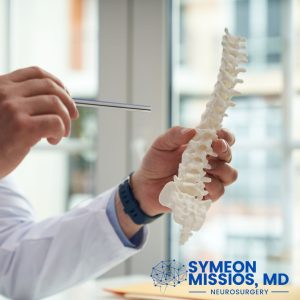Spinal Fracture Treatment on Long Island: Comprehensive Care for Spine Health
When it comes to spinal fracture treatment on Long Island, patients have access to world-class care and advanced treatment options. Spinal fractures can be debilitating, causing severe pain and limiting mobility. Fortunately, Long Island is home to numerous spine specialists and rehabilitation centers, such as the office of Dr. Symeon Missios, that offer cutting-edge treatments for various types of spinal fractures, including compression fractures.
Understanding Spinal Fractures
Spinal fractures occur when one or more vertebrae in the spine break or collapse. These injuries can result from trauma, such as car accidents or falls, or develop gradually due to conditions like osteoporosis. Compression fractures are a common type of spinal fracture, often affecting the thoracic and lumbar regions of the spine.
Types of Spinal Fractures
There are several types of spinal fractures, each requiring specific treatment approaches:
1. Compression fractures
2. Burst fractures
3. Flexion-distraction fractures
4. Fracture-dislocations
Compression fractures are the most common, especially in patients with osteoporosis. These fractures occur when the front part of the vertebra collapses, creating a wedge-shaped deformity.
Diagnosis and Evaluation
Accurate diagnosis is crucial for effective spinal fracture treatment on Long Island. Spine specialists use various diagnostic tools to assess the type, location, and severity of spinal fractures:
- X-rays
- CT scans
- MRI scans
- Bone density studies
These imaging techniques help doctors determine the best course of treatment and identify any potential complications, such as spinal cord involvement.
Spinal Fracture Treatment on Long Island
Long Island offers a wide range of treatment options for spinal fractures, from conservative approaches to minimally invasive procedures. The choice of treatment depends on the type and severity of the fracture, as well as the patient’s overall health and lifestyle.
 Conservative Treatment
Conservative Treatment
For many patients, non-surgical treatments can effectively manage spinal fractures:
1. Bracing: Custom-fitted braces provide support and promote healing.
2. Pain management: Medications, including NSAIDs and opioid analgesics, help control pain.
3. Physical therapy: Targeted exercises strengthen core muscles and improve posture.
4. Osteoporosis management: Medications and supplements address underlying bone density issues.
Minimally Invasive Procedures
When conservative treatments are insufficient, minimally invasive procedures may be recommended:
1. Vertebroplasty: Injection of bone cement into the fractured vertebra.
2. Kyphoplasty: Similar to vertebroplasty but involves creating space in the vertebra with a balloon before injecting cement.
3. Spinal cord stimulation: Electrical impulses help manage chronic pain associated with spinal fractures.
Surgical Intervention
In severe cases or when neurological complications are present, surgery may be necessary. Long Island spine surgeons specialize in advanced techniques, including:
1. Spinal fusion
2. Vertebral body replacement
3. Decompression surgery
Rehabilitation and Recovery
Rehabilitation plays a crucial role in spinal fracture treatment on Long Island. Physical therapy programs focus on:
- Strengthening core muscles
- Improving posture and balance
- Increasing flexibility
- Pain management techniques
Long Island Spine Rehabilitation Medicine offers comprehensive rehabilitation services tailored to each patient’s needs.
Choosing a Spine Specialist on Long Island
When seeking spinal fracture treatment on Long Island, it’s essential to choose a qualified spine specialist. Consider the following factors:
- Board certification and specialization in spine care
- Experience treating spinal fractures
- Access to advanced diagnostic and treatment technologies
- Comprehensive approach to care, including rehabilitation services
Long Island is home to numerous reputable spine care centers, such as Dr. Symeon Missios.
Prevention and Long-Term Management
Preventing future spinal fractures is an important aspect of treatment. Long Island spine specialists emphasize:
- Osteoporosis management
- Fall prevention strategies
- Regular exercise and physical activity
- Proper nutrition and supplementation
By addressing underlying risk factors, patients can reduce their chances of experiencing additional spinal fractures.
Start Your Healing Journey Today
Spinal fracture treatment on Long Island offers patients access to comprehensive care and cutting-edge therapies. From conservative management to advanced surgical techniques, Long Island spine specialists provide personalized treatment plans to address each patient’s unique needs. With a focus on both immediate treatment and long-term prevention, patients can expect improved quality of life and reduced risk of future fractures.
If you’ve suffered a spinal fracture or are experiencing symptoms such as persistent back pain or changes in posture, don’t hesitate to seek professional help. Contact the office of Dr. Symeon Missios today to schedule a consultation and take the first step towards recovery and improved spine health.
Frequently Asked Questions
Q: What is a spinal compression fracture?
A: A spinal compression fracture is a type of fracture that occurs when one or more vertebrae in the spine collapse or become compressed, often due to osteoporosis, trauma, or other conditions that weaken the bones.
Q: What are the common causes of spinal compression fractures?
A: Common causes of spinal compression fractures include osteoporosis, trauma from falls or sports injuries, and conditions such as spinal stenosis. These factors can lead to weakened bones that are more susceptible to fractures.
Q: What symptoms of spinal fracture should I look out for?
A: Symptoms of spinal fracture may include severe back pain, difficulty standing or walking, a hunched posture, and loss of height. If you’re experiencing these symptoms, it’s important to seek medical attention.
Q: What are the treatment options for spinal compression fractures?
A: Treatment options for spinal compression fractures may include pain relief medication, physical therapy, brace support, and in some cases, surgery to stabilize the spine. Consultation with a specialist is recommended to determine the best approach for each patient.
Q: How can long island spine rehabilitation medicine help with fracture therapy?
A: Long Island spine rehabilitation medicine offers specialized fracture therapy that focuses on pain relief, improving mobility, and strengthening the surrounding muscles. This therapy aims to help patients recover effectively from spinal fractures.
Q: When should I consider spine surgery for a spinal fracture?
A: Spine surgery may be considered if conservative treatment options fail to relieve pain or if there is significant damage to the spinal cord or surrounding structures. A thorough evaluation by a spine specialist is necessary to decide if surgery is appropriate.
Q: How can I contact you for a consultation regarding my spinal compression fracture?
A: To schedule an appointment or consultation regarding your spinal compression fracture, please contact us today by visiting our website or calling our office. Our team is ready to assist you with your needs.
Q: What is the role of fracture physical therapy in recovery?
A: Fracture physical therapy plays a crucial role in recovery by helping to alleviate pain, enhance mobility, and promote healing of the spine after a fracture. A tailored therapy program can significantly improve outcomes for patients with spinal fractures.
Q: Where can I find specialized treatment for spinal fractures on Long Island?
A: Specialized treatment for spinal fractures on Long Island can be found at various medical facilities that focus on spine care, including those offering long island spine rehabilitation medicine services. It’s recommended to research and consult with healthcare providers in your area.
Contact Us
Call us for a Consultation

Dr. Symeon Missios, MD, FAANS
Main Office:
Long Island Brain & Spine
380 Montauk Hwy
West Islip, NY
St. Catherine of Siena Medical Building
48 Route 25A, Suite 302
Smithtown, NY
The Cancer Institute at Good Samaritan Hospital
111 Beach Drive
West Islip, NY


 Conservative Treatment
Conservative Treatment